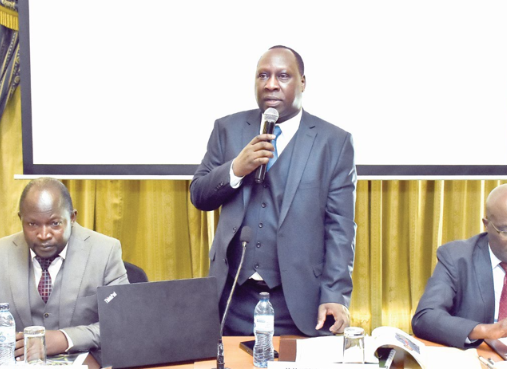

The Kenya Tea Development Agency (KTDA) has suspended all staff travel, off-site meetings, and training activities across its subsidiaries in a move aimed at strengthening governance and cutting operational costs.
In an internal memo dated October 21 and addressed to general managers, heads of subsidiaries, and department heads, KTDA management said the decision aligns with the group’s ongoing governance, compliance, and cost-management priorities.
“All staff travel is suspended until further notice. No travel—domestic or international—for any business-related purpose shall occur without explicit prior written authorisation from the Holdings Board through the Group CEO,” the letter stated.
The memo further directed that all external meetings, including those held at hotels or within tea factory locations, are prohibited unless expressly approved in writing by the Holdings Board, upon formal submission and recommendation by the Group CEO.
It also ordered the immediate suspension of all training activities—planned, ongoing, or upcoming—whether at factory premises or other venues, unless specifically cleared by the Group CEO.
“This directive applies to all employees across all functions and levels. The only exceptions will apply to roles deemed operationally critical and must be pre-approved in writing by the Group CEO,” the memo read.
KTDA instructed all department and subsidiary heads to communicate the directive promptly and ensure full compliance across their business units.
The sweeping restrictions come at a time when the government has ordered a comprehensive audit of loans taken by tea factories managed by KTDA, following mounting concerns over the low bonus payments declared for the current financial year.
Principal Secretary in the State Department for Agriculture, Kipronoh Ronoh, said tea growers had raised numerous complaints over the reduced earnings, prompting the ministry to initiate a detailed review of the factories’ financial management.
“These concerns have necessitated an in-depth review of the financial obligations and management practices within the factories,” Ronoh said.
In a letter to the Tea Board of Kenya Chief Executive Officer, Willy Mutai, Ronoh directed the board to determine the total amount of loans borrowed by each factory, how the funds were utilised, the terms and conditions of the loans, and the current outstanding balances.
“The findings of this audit will enable the Ministry to evaluate the financial sustainability of the factories and to formulate appropriate operational measures aimed at addressing the challenges currently facing the tea sub-sector,” he added.
The Tea Board has been instructed to commence the audit immediately and submit a detailed report to the Ministry within 14 days.
The government’s directive follows widespread discontent among the more than 680,000 smallholder tea farmers represented by KTDA, who have seen a significant decline in their bonus payments compared to the previous year.

















